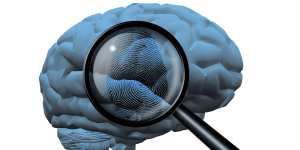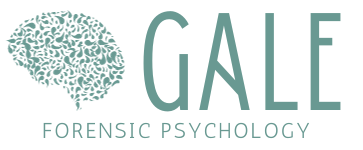Forensic Psychology and Psychological Assessments
Due to the proliferation of crime TV shows, there has been an increased interest in understanding Forensic Psychology. Profiling criminals and capturing them by the end of a 1-hour program can be satisfying, but it is an unrealistic portrayal of law enforcement and psychologists, specifically forensic psychologists. Forensic psychology combines psychology and the law in which psychology is applied to issues regarding the law and legal system. Individuals working in this field may not be licensed “forensic psychologists,” but school psychologists, clinical psychologists, or counselors whose psychological expertise is utilized in legal cases. These experts may assist in the following ways.
- Child custody evaluations
- Consult with law enforcement
- Testimony as an expert witness
- Psychological services to inmates
One hallmark of forensic psychology is the use of tests and assessments to diagnose, provide a recommendation, or give a hypothesis about an individual’s behavior, personality, and skills. A psychological assessment can include a battery of tests to provide a full picture of a person’s behavior, traits, and capabilities. The four components of psychological assessments include norm-referenced tests, observations, interviews, and informal assessments.
Norm-references Tests
Norm-referenced tests are psychological tests standardized on a norm group that allows individualized scores to be ranked according to a scale. These tests can assess intelligence, academic achievement, motor skills, and adaptive behavior. Norm-referenced tests provide information about an individual’s level of functioning in a relatively short period of time.
Observations
Observations are best in the individual’s natural settings, such as at home, in the community, and at school. This allows the psychologist to determine how the person behaves across settings and provides a clearer picture of their overall functioning. This particular method can be instrumental in providing treatment recommendations and determining competency.
 Interviews
Interviews
Interviews are more fluid and less structured than standardized testing. Respondents can share background information, such as childhood history and work experience. This allows the individual to tell their story in their own words and share information that may not organically appear in more structured testing.
Informal Assessments
Informal assessments may include projective tests, language samples, and drawings from children. While these tests need to be cautiously evaluated, as they are not scientifically validated as norm-reference tests, they may shed light and be a supplement to the overall battery of tests.
While criminal TV shows may not accurately portray the field of understanding forensic psychology, they have highlighted the importance of experts in this field and their assistance in legal matters. When psychology and the law interacts, experts can use their clinical skills to assess and evaluate individuals to improve their diagnoses, recommendations, and evaluations.
If you need a Forensic Psychologist, we are here for you.
